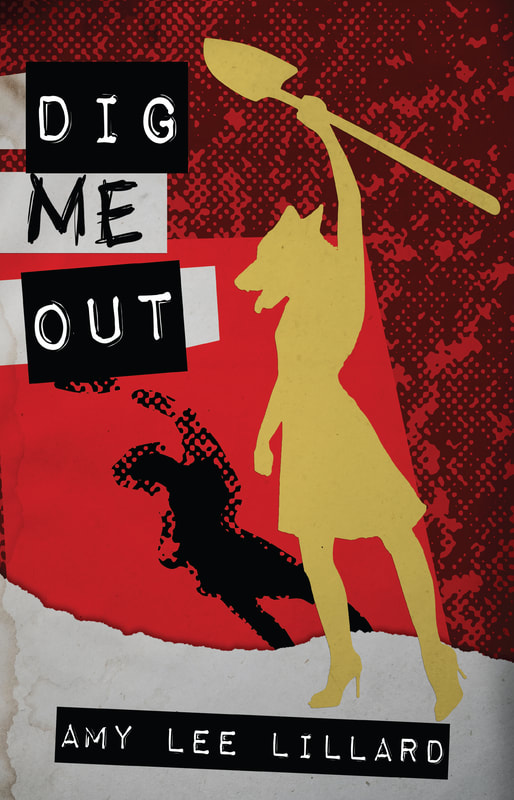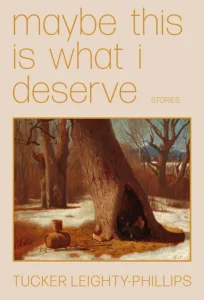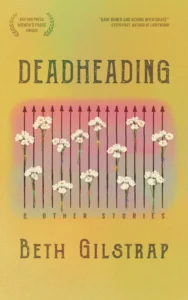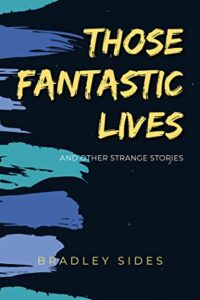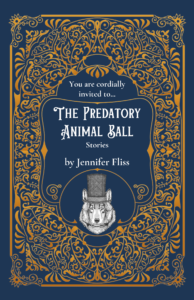Reviewed by Jennifer Marie Donahue | November 16, 2021
Atelier26 Books, October 2021
Paperback, 214 pages, $16.00
The ten stories within Amy Lee Lillard’s debut collection, Dig Me Out, thrum with the visceral energy of a well-curated playlist. Each story’s title draws from a diverse mix of feminist and punk rock musical influences. These musical origins serve as a type of guidepost for the reader, illuminating the path into these highly affecting and original stories. One doesn’t need to be fluent in references to Sonic Youth, Sleater-Kinney, or X-Ray Spex, to appreciate the masterfully rendered emotional landscape and the risks taken in this collection. We meet a diverse cast of vibrant characters–rebel women–firmly rooted in the struggle of corporeal truths: agency, power, identity, and desire. Some are difficult or damaged, but Lillard succeeds in revealing a vulnerability that has us rooting for them, fully aligning with their desires, and admiring their resolve and courage even as they break rules and other bodies. This collection truly is, as it professes in the dedication, “For the women who won’t smile.”
In the first story “Bang Bang,” the narrator oscillates between opposite ends of her “prime” through an experience at age twelve and another at thirty-eight. We soon learn how this common event of a vehicle hitting an animal reveals a deeper connection in this character’s life. “Mom had been talking about animals before we hit one. Men are the wolves, she’d said. We’re the deer.” Juxtapositions build around the body, the animal, and roles in relationships: pubescent girl/sexually active woman, wild/domesticated, passenger/driver, victim/aggressor. The story anchors the emotional complexity of the mother to what the narrator will come to understand as her own truth at thirty-eight: “These? I’m just crying because I’m happy. All our emotions are mixed together, you know. We can’t separate being sad and being happy. Or even being mad! It’s what makes us females.” All of this makes the reader ponder, what happens when a woman excavates what is buried down deep?
The surreal and uncanny are employed to great effect in many of these inventive stories. In “Bull in the Heather,” we encounter an imagined future where a “Solo” or an unmarried, childless woman is given an expiration date of forty-five, and only through winning a Life Election can they continue living beyond their assigned use. A woman’s age is part of the complicated equation of being seen and having value. In “Oh Bondage, Up Yours,” authority is reclaimed by assuming a new role, if only temporarily. On a night when Mrs. Wallace is a man, she warns, “But beware. My tales are of truth, which is not the same as happiness. Prepare yourselves for a story of horror. A story of a woman grown old.” Women grown old are thrust into independence in “Double Dare Ya,” and they emerge with special abilities to move things, heal, and peer into the thoughts and feelings of others. Their status as “unseen” allows them to operate without notice of the male gaze and claim new power.
Anger is a potent force, a beating heart, in the world of these stories. Lillard handles this emotion with precision, showing the longing and desire that lives beneath the surface. In “Head like a Hole,” the narrator tells us, “Wild things are living in this sedate suburb. Underneath us.” This thematic refrain of what is buried, be it in the desires of a 1940s married woman in love with her girlfriend in “We Used to Wait” or the search for feeling, even if it is pain, in “The Human Form Where I was Born,” returns again and again, but with each reference, it casts a more resonant mark and builds additional meaning. In the stellar eponymous story “Dig Me Out,” we fully interrogate the question of what happens when a woman uncovers what raw truths live beneath the surface. The story opens with our narrator witnessing her co-worker and star salesperson at the furniture store, Nina, smashing halogen light bulbs in the back lot, out of control. Soon after, Nina loses her voice. “I don’t know if something switched off all of a sudden, or if she lost her words one by one and we just didn’t notice. But I do know she sold even better while silent,” the narrator tells us. Nina only communicates with our narrator in puzzling song lyrics. Obsessed with this music, the narrator confronts Nina at home, determined to figure out what is real or imagined: “I thought I could see the girl inside her, under that skin, the wild and loud and brash thing that was truly her. The one that was singing to me. I didn’t care if I was sick, or breaking. I thought about how Nina might be able to see the girl under my skin, if she wanted to.” To be seen, to uncover that wild hidden mystery is to manifest something both powerful and dangerous. This collection of stories is a fierce and impressive examination of the messy process of reclaiming agency in a world hell-bent on silencing and erasing from view those who refuse to stay inside their prescribed role and smile on command.
ABOUT THE AUTHOR
Amy Lee Lillard was shortlisted for the 2017 Berlin Writing Prize and named one of Epiphany’s Breakout 8 Writers in 2018. Her writing appears in Barrelhouse, Foglifter, Angst, Epiphany, and Atlas and Alice. Amy is the co-creator of Broads and Books, the funny and feminist book podcast. She holds an MFA in fiction writing from the Pan-European program at Cedar Crest College. Amy was born and raised in Iowa, lived in Chicago for many years, and now lives in Des Moines.
ABOUT THE REVIEWER:
Jennifer Marie Donahue’s recent writing appears in Cotton Xenomorph, Dappled Things, Fiction Writers Review, The Lit Pub, and Catapult. Her work earned an honorable mention in the J.F. Powers Prize for Short Fiction and was named a finalist for the Barry Hannah Fiction Prize. You can find her online at jmdonahue.com or on Twitter @jmdonahue.


